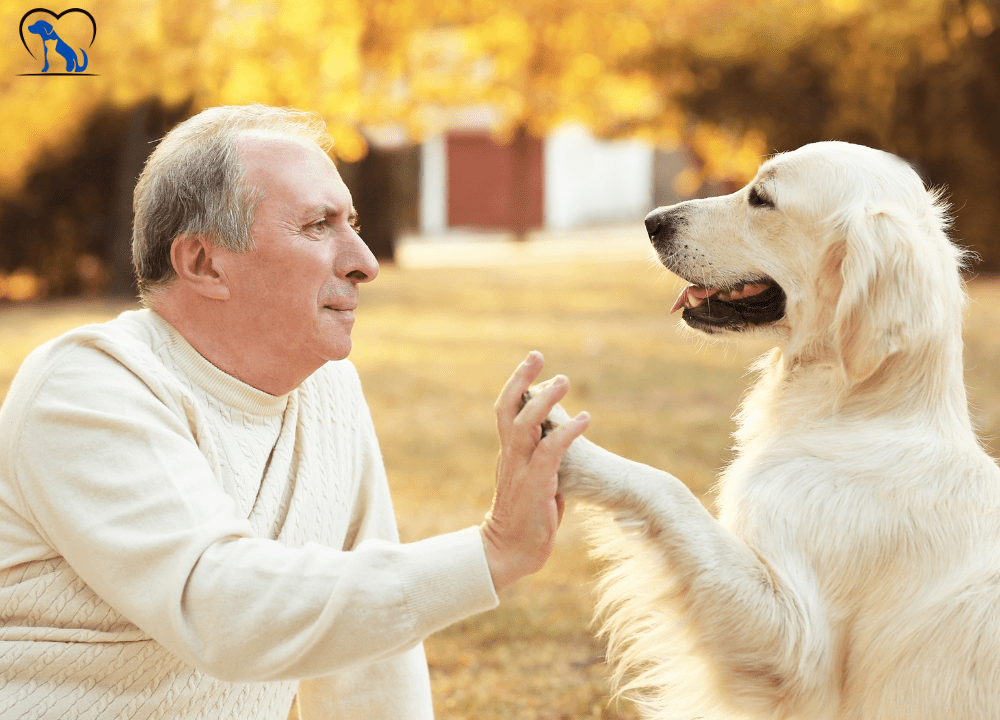The 10 worst dog breeds for seniors due to high maintenance are breeds that demand constant attention, exercise, and care. These breeds can overwhelm seniors seeking low-energy companions.
Selecting a dog breed compatible with a senior’s lifestyle is crucial for a harmonious bond between the pet and owner. As seniors often look for companionship, comfort, and minimal stress, choosing a dog that is easy to take care of becomes a priority.
However, not all dogs are suitable for older adults. High-maintenance dog breeds can pose significant challenges for seniors, including the need for regular vigorous exercise, complex grooming requirements, and a high demand for stimulation and engagement. These needs may be difficult to meet for individuals facing mobility issues or decreased energy levels.
Table of Contents
Challenges Of Owning A High Maintenance Dog
Thinking about adding a furry friend to your life? For seniors, this means considering more than just the breed’s cuteness. High maintenance dogs come with challenges. They often need extra care, time, and resources. Let’s dive into what makes these breeds a hefty commitment for elderly pet owners.
Health Concerns
High maintenance dogs may face breed-specific health issues. Regular vet visits become crucial and often frequent. Monitoring a high-energy dog’s health requires dedication and can be costly. These breeds might need:
- Special diets to support their energy levels or manage weight.
- Regular check-ups more often than other dogs.
- Grooming needs, including professional services, to keep their coats healthy.
- Medications for inherent health conditions common in their breed.
Age-related changes in seniors can also affect their ability to care for a high-maintenance dog. Agility declines, making physically demanding tasks harder.
Exercise Requirements
High-energy dogs need regular, vigorous exercise. Without it, they may develop behavior issues. Some breeds require hours of activity each day. This physical demand can be overwhelming for many seniors.
Exercise routines can be difficult to maintain. Long walks and active playtime are essential. They help prevent obesity and keep the dog mentally stimulated. This level of care is a big time commitment and may be too intense for some seniors.
Factors To Consider For Senior Dog Owners
Choosing a furry companion in your golden years encompasses various factors. Seniors must deliberate on their lifestyle, home environment, and physical capabilities. The right dog enhances well-being. The wrong choice leads to overwhelming responsibilities.
Energy Levels
Dogs with high energy levels require frequent walks, play, and mental stimulation. These needs may surpass a senior’s energy. A mismatch creates an unhappy pet and owner. Consider breeds with calmer dispositions for a harmonious match.
Size And Strength
The size and strength of a dog can pose challenges for seniors. Larger breeds, despite their gentle nature, might be too powerful. Seniors risk injury from accidental pulls or knocks. Opt for smaller, more manageable dogs.
| Breed Size | Manageability |
|---|---|
| Small | Higher |
| Medium | Moderate |
| Large | Lower |
01. Labrador Retriever
The Labrador Retriever is one of the most adored dog breeds in the world. Known for its friendly nature and loyal disposition, this breed often tops the list of family favorites. Nonetheless, for seniors seeking a low-maintenance companion, a Labrador might not be the best choice. Below, we delve into two key reasons why Labs can be quite a handful for older individuals.
Shedding And Grooming Needs
Labradors are notorious shedders. Their dense double-coats mean that they shed hair throughout the year, with two major shedding seasons in spring and fall. This can be quite the challenge for seniors to keep up with. Regular brushing, at least once a week, is necessary to keep their coat healthy and to reduce the amount of hair around the home. Seniors may find the constant cleaning quite taxing.
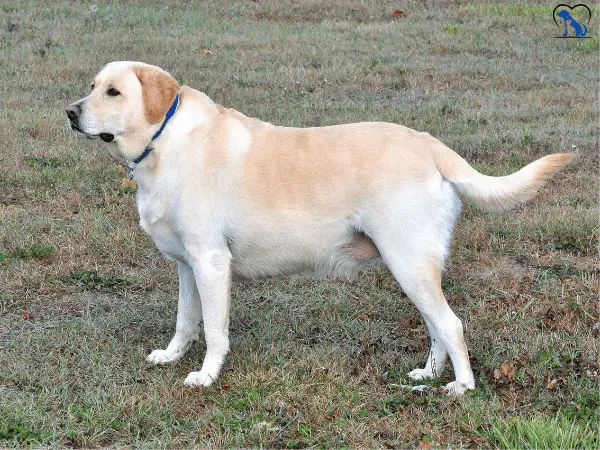
High Energy Levels
Moreover, Labradors are brimming with energy and require a lot of exercises. From long daily walks to active playtime, these dogs need to burn off their enthusiasm. Without proper outlets for their energy, they may become destructive or develop behavioral issues. For seniors who prefer a quiet and calm environment, a Labrador’s high-spirited antics could be overwhelming.
02. Dalmatian
The Dalmatian, famed for its distinct spotted coat and noble history, is an eye-catching breed. Belying their poised appearance lies a vigorous spirit that may prove overwhelming for senior dog owners. These iconic dogs are not just high-maintenance in terms of grooming but also in their overall care demands.
Prone To Health Issues
Dalmatians often face numerous health challenges. Here are some common ones:
- Deafness: A genetic predisposition that affects around 30% of the breed.
- Urinary stones: Their unique urinary system means they need a special diet to prevent stone formation.
- Hip dysplasia: A painful condition that can lead to mobility issues.
These health issues necessitate frequent vet visits and careful monitoring, which can be taxing for an older adult.
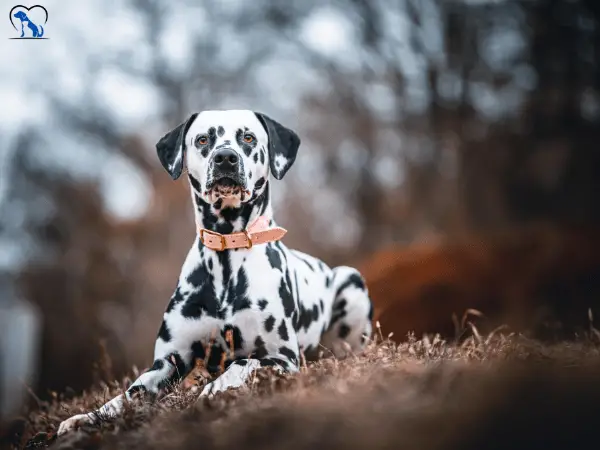
Energetic And Strong-willed
Dalmatians possess a boundless energy that requires ample exercise. Seniors might find it tough to keep up with:
- Daily long walks or runs.
- Interactive play sessions.
- Consistent training to manage their strong will.
Without proper outlets for their energy, Dalmatians may develop destructive behaviors. They are known to be headstrong, which makes consistent obedience training essential yet challenging.
03. Husky
The Husky, a breed known for its stunning appearance and wolf-like features, is an energetic dog full of personality. Unfortunately, this breed might pose significant challenges for seniors. Careful consideration is essential before bringing a Husky into a senior’s home.
Cold Weather Needs
Huskies thrive in cold climates, reflecting their history as sled dogs in Siberia. They possess thick, double-layer coats requiring cold temperatures to stay comfortable. Seniors living in warmer areas or with limited access to air-conditioned spaces will find meeting a Husky’s needs particularly demanding.
- Require access to cool environments
- Could suffer in hot weather
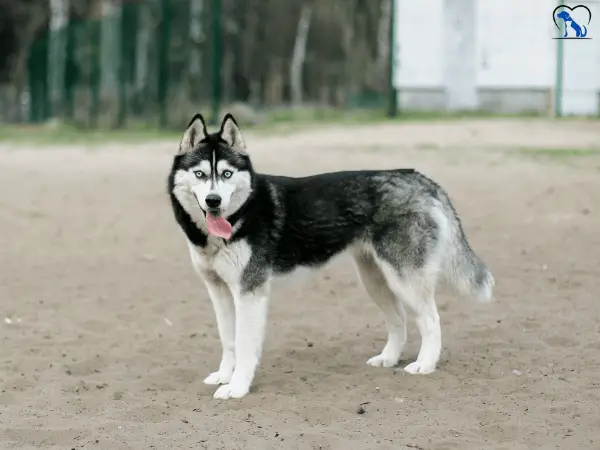
Independent Nature
Huskies are known for their independent and sometimes stubborn temperaments. This breed often prefers making its own decisions rather than following commands. For seniors seeking a compliant companion, a Husky’s willful personality can present a significant challenge.
| Husky Trait | Senior’s Consideration |
|---|---|
| Intelligence | Needs mental stimulation |
| Stubbornness | Requires patience and training |
04. Border Collie
The Border Collie is a breed that embodies vigor, intelligence, and agility. Often crowned as the most intelligent of all dogs, these energetic herders are not built for a sedentary lifestyle. Seniors might find them quite a handful with their boundless energy and sharp minds.
High Intelligence And Exercise Needs
Border Collies possess exceptional intelligence. This trait, while admirable, means they require constant mental stimulation. These astute canines are not the type to laze around. Their exercise needs are high, demanding prolonged physical activities daily. A simple walk is not enough; they crave challenging tasks and interactive play sessions.
- Daily vigorous exercise is a must
- Brain games and agility training are highly beneficial
- Lack of activity leads to frustration and restlessness
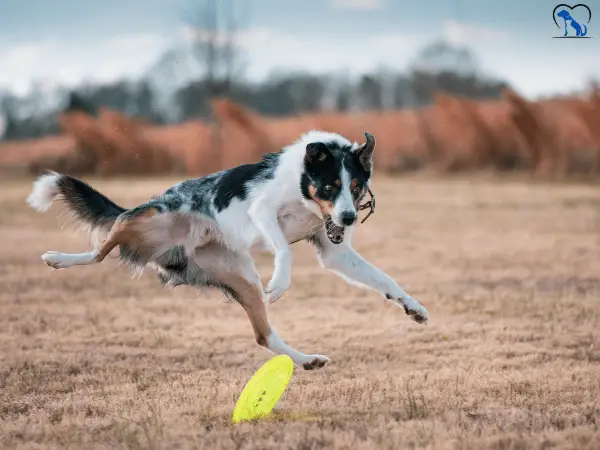
Potential For Behavioral Issues
If a Border Collie’s mental and physical needs are not met, behavioral issues may arise. They may resort to destructive behaviors as an outlet for their energy. Senior owners should be cautious, as managing such behaviors can be overwhelming. Border Collies may develop excessive barking, chewing, or herding behaviors, especially around young children or pets.
| Behavior | Cause | Solution |
|---|---|---|
| Destructive Chewing | Boredom or Excess Energy | Provide engaging toys and regular exercise |
| Excessive Barking | Lack of Stimulation | Behavioral Training and Mental Challenges |
| Herding Behavior | Instinctual Drive | Direct energy to specific tasks or sports |
05. Jack Russell Terrier
Jack Russell Terriers are delightfully spirited and energetic small dogs. Despite their compact size, they pack a punch in terms of personality and activity needs. This breed’s robust energy and intensity, though cute, may not be the ideal match for the laid-back lifestyle often associated with senior living.
Small Size, Big Energy
The petite stature of Jack Russell Terriers is misleading. Beneath their small frame lies a dynamo of energy often too zesty for a senior’s quiet life. These dogs require:
- Regular exercise
- Engagement with toys
- Vigorous playtime
These needs can be taxing for individuals seeking a more relaxed, low-energy companion.

Terrier Temperament
Jack Russell Terriers exhibit a distinct terrier temperament. Known for their fearless nature, they often exhibit:
| High prey drive | Chasing instincts |
| Stubborn streaks | Can be vocal |
| Bouts of barking | Can be vocal |
Seniors desiring a more docile pet may find these traits challenging to manage.
06. Chow Chow
When thinking about a canine companion for seniors, the Chow Chow might not be the perfect fit. This breed, known for its lion-like mane and noble stance, can present some challenges for older adults. Let’s explore why a Chow Chow may not suit senior living.
Coat Care
The luxurious double coat of a Chow Chow is a sight to behold. However, it comes with high maintenance. Regular grooming is essential to maintain their fluffy appearance and prevent matting. Here are the coat care needs:
- Daily brushing to remove loose fur and prevent tangles.
- Professional grooming every few months to manage the thick undercoat.
Without proper care, their coat can quickly become unmanageable, which may be difficult for seniors with limited mobility or energy.

Aloof Personality
Chow Chows have an independent nature that some might misinterpret as aloofness. Their personality traits include:
- Reserved with strangers.
- Strong-willed and not always eager to please.
This standoffish behavior means they require an owner who understands their need for space. Close bond building and training might take extra effort, a task possibly too demanding for some seniors.
07. Boxer
The Boxer is a breed known for its boundless energy and playful spirit. While these traits endear them to many, they often pose a serious challenge for seniors. This breed requires a significant amount of attention, exercise, and care, making it a less than ideal choice for older individuals seeking a low-maintenance pet.
High Energy Levels
Boxers are high-spirited dogs with energy levels that can be overwhelming for seniors. They need:
- Daily vigorous exercise
- Interactive play sessions
- Constant mental stimulation
Without proper outlets for their energy, Boxers may develop destructive behavior. Such needs might prove too demanding for seniors with limited mobility or energy themselves.
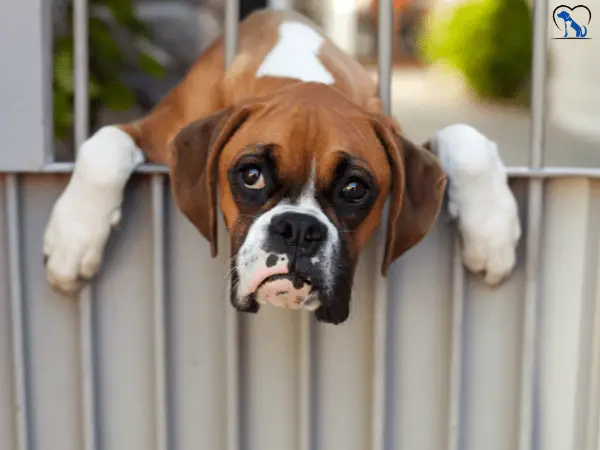
Health Concerns
Regrettably, Boxers come with an array of health issues that require vigilant care:
| Health Issue | Care Needed |
|---|---|
| Heart Conditions | Regular veterinary check-ups, medications |
| Hip Dysplasia | Weight management, possible surgery |
| Cancer | Frequent monitoring, potential treatments |
The costs and emotional toll of managing these conditions can be strenuous for senior dog owners. Each visit to the vet or new medicine represents not just a financial burden but also a weight on the owner’s shoulders.
08. Weimaraner
The Weimaraner is a breed known for its striking grey coat and bright, attentive eyes. Originally bred for hunting, this dog has high energy levels and needs a great deal of mental stimulation. For seniors, managing a Weimaraner’s robust demands can be a real challenge. Let’s delve into what makes this breed less suitable for older dog lovers.
Exercise Requirements
Weimaraners are full of vigor and require substantial exercise to stay healthy and happy. The breed demands:
- Daily vigorous walks of at least an hour
- Space to run, play, and explore
- Interactive games like fetch or agility training
Seniors might find these needs difficult to meet, potentially leading to a dissatisfied and destructive dog.
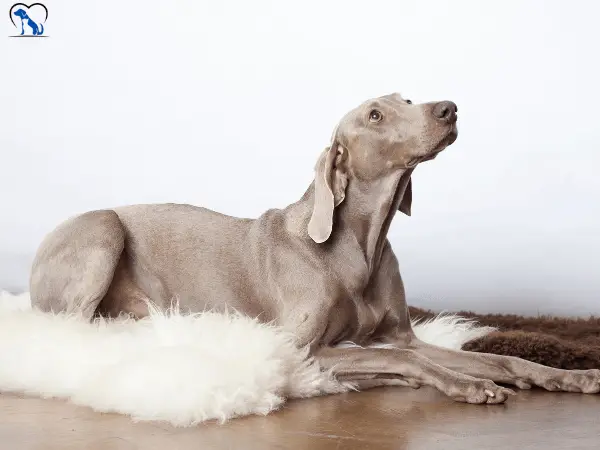
Separation Anxiety
Known for their loyalty, Weimaraners form strong bonds with their owners. This attachment often results in:
- Separation anxiety when left alone
- Disruptive behaviors like barking and chewing
- Need for constant companionship
For seniors seeking a low-maintenance companion, Weimaraners may not be the ideal choice due to their need for near-constant attention and emotional support.
09. Australian Shepherd
The Australian Shepherd, a remarkable and charismatic breed, stands out with its vibrant coat and piercing eyes. Known for their boundless energy and sharp minds, Australian Shepherds thrive in environments that challenge both their physical and mental abilities. While their attributes can make them exceptional pets for the right owners, they may pose significant challenges for seniors looking for a serene and low-maintenance companion.
Intelligence And Activity Levels
Australian Shepherds are not only intelligent but also require frequent mental stimulation. This breed demands jobs to keep their minds active or they might find their own – often undesirable – activities. They are not suited for a sedentary lifestyle.
- Need for daily exercise: Adequate physical activity is crucial.
- Training: Consistent, engaging training sessions are vital.
- Creative play: Puzzle toys can provide mental workouts.
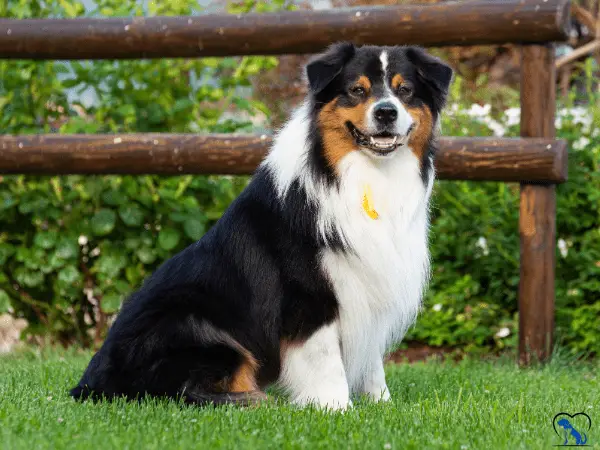
Herding Instincts
The Australian Shepherd’s innate herding instinct can present challenges in a household setting. This breed has a natural drive to herd moving objects, which might include children, pets, or even adults. Their nipping and chasing behaviors might be difficult to manage for those with limited mobility.
| Instinct | Behavior | Management Need |
|---|---|---|
| Herding | Nipping and chasing | Consistent behavioral training |
| Watchfulness | Barking at strangers and noises | Controlled socialization |
10. Great Dane
The Great Dane is a breed known for its majestic stature and gentle temperament. Often referred to as the “Apollo of Dogs,” these gentle giants carry a presence that is both regal and imposing. Despite their loving nature, Great Danes can be a challenge for seniors, primarily due to their size and health requirements.
Size And Space Requirements
Great Danes demand significant space both indoors and outdoors. These dogs can grow to an impressive size, often weighing between 110 to 175 pounds. Consider the following:
- Indoor living areas must be spacious to accommodate their large size.
- Yards need to be secure and large enough for them to stretch and exercise.
Seniors with limited space may find housing a Great Dane challenging. Apartments or homes without a yard are not ideal for this breed.
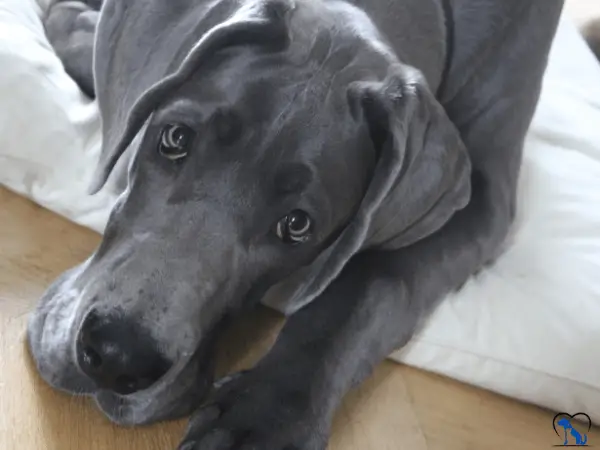
Health Concerns
Great Danes, while noble and dignified, are prone to several health issues that require attention. Notable concerns include:
| Health Issue | Description | Impact on Seniors |
|---|---|---|
| Cardiomyopathy | A condition affecting the heart muscle. | May lead to high vet bills and the need for special care. |
| Hip Dysplasia | A malformation of the hip joint. | Can cause the dog pain and limit mobility, requiring assistance from the owner. |
| Bloat | A life-threatening stomach condition. | Needs immediate medical attention, adding stress for the caregiver. |
Given these potential health issues, seniors must assess their ability to handle emergent health care needs. Great Danes often require a commitment to frequent vet visits.
Frequently Asked Questions
What Is The Easiest Dog For Seniors?
The easiest dog for seniors is the Cavalier King Charles Spaniel. They have a gentle disposition, require moderate exercise, and are affectionate companions.
What Is The Hardest Dog To Take Care Of?
The hardest dog to take care of often is the Border Collie, due to its high maintenance coat and independent personality.
What Is The Lowest Maintenance Dog To Have?
The Chihuahua is one of the lowest maintenance dogs, owing to its small size and minimal grooming needs. They require less exercise and food, making them ideal for easy care.
Is The Schnauzers Breed Suitable For Seniors?
Yes, Schnauzers can be a suitable breed for seniors. They are generally small to medium-sized dogs that are loyal, intelligent, and adaptable to different living situations.
Conclusion
Selecting the ideal canine companion in your golden years involves finding a low-maintenance breed. Our list aimed to highlight the potentially challenging dogs for senior lifestyles. Prioritize breeds that offer comfort and companionship with minimal fuss. Remember, a perfect senior dog supports your pace of life and brings joy, not burdens.

